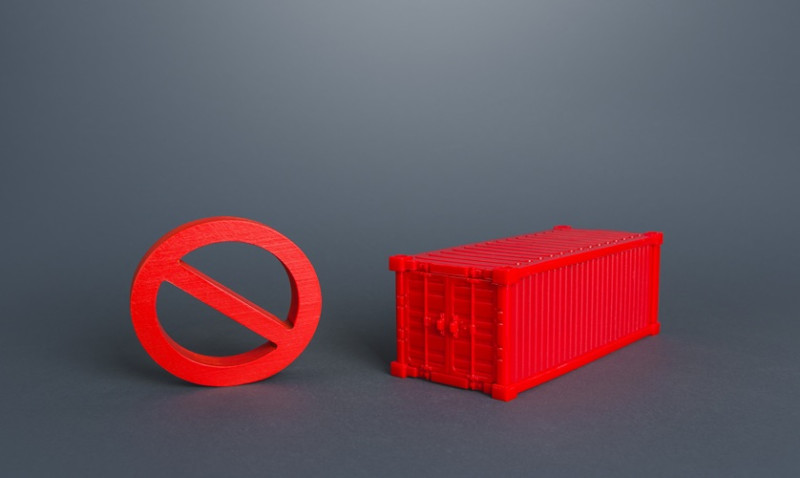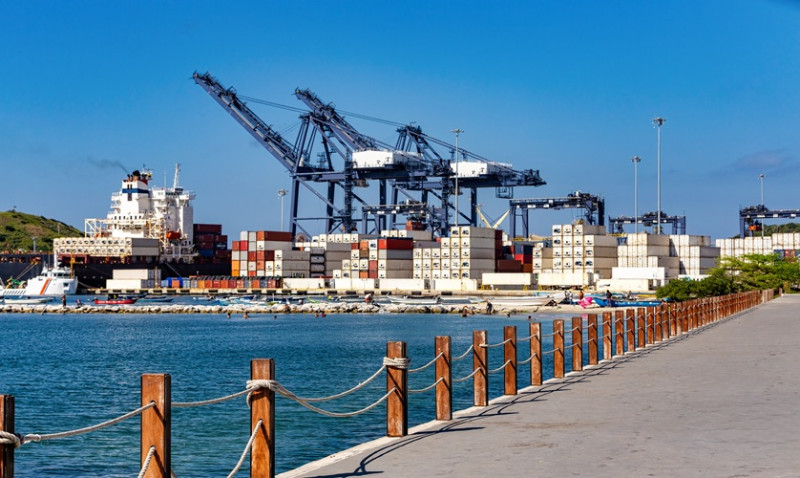
For UK-based entrepreneurs, tradespeople, architects, designers, and DIY enthusiasts looking to elevate their business, exporting goods to Dubai presents a golden opportunity. Dubai is not just the Middle East’s most cosmopolitan city – it's also a booming marketplace with a strong appetite for high-quality, imported goods, especially from trusted markets like the United Kingdom.
In this article, we’ll explore how you can tap into Dubai’s lucrative export market, what products are in demand, how to navigate the legal export framework, and key strategies to maximise your profits. Whether you’re in the home décor sector, bespoke joinery, lighting & electrical equipment, luxury fittings, or handmade furnishings business – this guide is tailored for you.
Why Export to Dubai?
Dubai has transformed itself into a global business hub, and its reliance on imports is key to its economic engine. The city imports over 85% of its goods, meaning foreign suppliers have a massive advantage. With minimal import duties (usually around 5%), no VAT for re-exported goods, and a strong infrastructure supporting trade – setting up exports to Dubai can be extremely profitable.
British-made products, in particular, enjoy a reputation for quality, precision, and elegance. From luxury bathroom fixtures to bespoke kitchen fittings and electrical components, Dubai's residents and property developers actively seek out UK suppliers. As property development continues to boom in Dubai, there's a sustainable demand for high-end finishes, new-build materials, and modern renovation solutions.
Furthermore, with Dubai set to continue major construction projects leading up to 2030 and beyond, professionals in home renovations and custom interiors find their offering in particularly high demand. Whether you’re a craftsman producing bespoke wooden fittings or a distributor of power tools and materials – the time to enter Dubai’s market is now.
What Products from the UK Are in High Demand in Dubai?
Understanding what sells is half the battle. Dubai’s affluent residents and commercial developers are always on the lookout for innovative, premium, and durable products. Here's a breakdown of UK-made goods that are especially popular in Dubai:
| Category | Examples | Why They Sell |
|---|---|---|
| Home Décor & Furnishings | Lighting fixtures, furniture, textiles, wallpapers | UK items are associated with craftsmanship and style |
| Construction Material | Timber, insulation, roofing, smart home tech | Large-scale developments require reliable suppliers |
| DIY Tools & Equipment | Power tools, measuring equipment, kits | High-quality UK tools are trusted by professionals |
| Luxury Fittings | Designer bathrooms, kitchens, faucets, tiling | Luxury developments demand exclusive UK brands |
| Eco-friendly Products | Energy-efficient materials, smart systems | Growing market for green-friendly construction |
Dubai also has a strong DIY and renovation culture in its residential suburbs. UK suppliers offering ready-to-assemble furniture, smart systems, and other homeowner-driven upgrades can cater to a fast-evolving and lucrative niche.
How to Get Started Exporting from the UK to Dubai
The path to success involves planning, networking, and understanding regional requirements. Here’s what UK businesses should prepare as they eye the Dubai market:
1. Find a Local Partner: Most successful UK exporters start by teaming up with a local distributor, sales agent, or business consultant in Dubai. These professionals help you navigate the market and connect you with key buyers.
2. Understand Dubai’s Import Regulations: The UAE has strict rules for product standards, especially for electrical goods, construction materials, and fabrics. You’ll likely need to register your products with local authorities such as the Emirates Authority for Standardisation and Metrology (ESMA).
3. Calculate Your Costs: While Dubai has low import duties, you should factor in shipping fees, taxes, paperwork, and potential warehousing. Use trade agreements to your advantage – the UK has strong bilateral ties with the UAE.
4. Protect Your Brand: Trademarks, design rights, and contracts are a must in international trade. Ensure your business is legally protected when entering a foreign market.
5. Attend Trade Fairs: Exhibitions like The Big 5 (Dubai World Trade Centre) or INDEX Dubai are excellent for finding clients, exploring competitors and networking with key players in construction and design.
Essential Export Documentation You’ll Need
Without the correct documentation, your products might get stuck at customs. Exporting goods from the UK to Dubai involves several steps, and preparation is crucial. Here's what is typically required:
- Commercial Invoice
- Certificate of Origin (often with attestation from the Arab British Chamber of Commerce)
- Packing List
- Export License (if required based on product type)
- Bill of Lading / Air Waybill
- Health or Safety Certificates for specific goods (e.g. timber or furnishing textiles)
Partnering with a freight forwarder or logistics company familiar with UAE trade rules can reduce delays and ensure all paperwork is accurate.
How to Market Your Products in Dubai
Once your goods land in Dubai, the real opportunity begins — marketing and selling your items effectively. Dubai’s buyers are both online and offline, upscale and design-focused. Here’s how to stand out:
1. Go Digital: Launch a well-crafted website tailored to the Middle East market, with Arabic translation and options for pricing in AED. Utilise platforms like Instagram and LinkedIn for showcasing products.
2. Use Dubai Marketplaces: Platforms like Noon, Amazon UAE, and HomeBox UAE are popular e-commerce hubs where UK sellers can register.
3. Leverage Trade Networks: The British Centres for Business (BCB) in Dubai provides on-ground support for UK exporters and can facilitate introductions, networking events, and setup services.
4. Work with Interior Designers and Contractors: If you’re exporting to serve the construction trade, building relationships with designers, strategists, and project managers on luxury developments can secure consistent bulk orders.
Dubai Free Zones: A Smart Base for UK Exporters
Dubai’s Free Zones allow 100% foreign ownership and streamline business operations for exporters. Setting up your showroom or regional office here gives you easy access to the entire GCC (Gulf Cooperation Council) market.
Popular Free Zones for construction and design exporters include:
- Jebel Ali Free Zone (JAFZA): Great for logistics-based exporters
- Dubai Design District (d3): Perfect for furniture and décor sellers
- Dubai South: Strategically located near Al Maktoum Airport, ideal for shipping
These Free Zones offer exemptions from import duties, lower custom regulations, and plug-and-play office environments designed to facilitate international trade.
Final Thoughts: Is It Worth It?
In short – yes, exporting to Dubai from the UK can be incredibly profitable. However, like any venture, success relies on education, smart partnerships, a solid logistics plan and a clear go-to-market strategy. Businesses that bring legitimacy, quality assurance, and innovation to Dubai's thriving consumer market will always see higher conversions.
From lighting designers and kitchen fitters to workshops crafting eco-friendly fixtures — Dubai wants what UK makers excel at producing. Seizing this opportunity could not only deliver serious profits but position your brand as a global player in one of the most exciting export markets in the world.
Ready to turn your tools into treasure in Dubai? Start planning your trade route — and let your business light up the Gulf!






